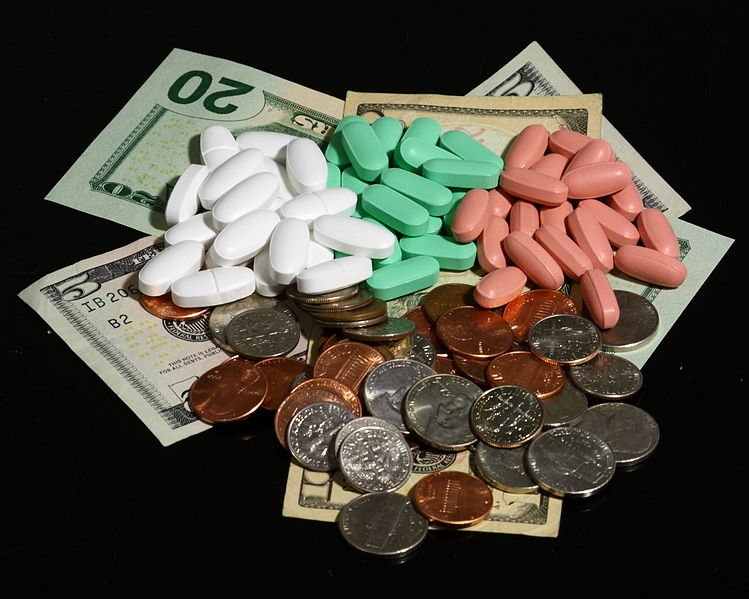Science is supposed to be self-correcting. Yet in recent years in some areas – biomedicine and social science, especially – the process seems to be failing. Many published studies turn out to rely on flawed methods or even fraud. One cause is the bad incentives under which most scientists operate. But a deeper problem, not easily cured, is that science, like every other human activity, may be subject to diminishing returns.

source wikimwdia commons
A major failure is the so-called replication crisis: researchers in social and biomedical science cannot reliably repeat an experiment and get the same result. Since replicability is the criterion for truth in experimental science, failure to replicate is a serious problem. In 2016 the prestigious international science journal Nature published a survey which showed that “More than 70% of researchers have tried and failed to reproduce another scientist’s experiments, and more than half have failed to reproduce their own experiments.” In 2011 the Wall Street Journal described how the pharmaceutical company Bayer attempted to replicate a number of drug studies and failed nearly two thirds of the time. The situation may be even worse than these results suggest, because in social science, especially, replication is rarely attempted. It follows that many conclusions about diet, drugs, bias, prejudice and the right way to teach – are false.
False findings are necessarily the basis for flawed practice and the pursuit of scientific dead-ends. Researcher A learns from the literature, that X is true. He infers that if X is true, then Y must follow. He tests (usually inadequately) Y, and finds it to be true…Rinse and repeat with Researcher B and finding Y... If X is in fact false, this trail leads nowhere. Flawed research is not something that can be ignored: it has a real and potentially growing cost.
Driving cars, farming wind turbines, working in shared spaces, and living in high-rise apartments are all relatively new experiences for the human species, but they demonstrate that we are particularly good at adapting to a diverse range of landscapes. Environmental psychology, which may encompass ecopsychology and conservation psychology, explores the relationship between humans and the world and how physical spaces influence the way we feel, think, and interact within both natural and built landscapes. Researchers in the field investigate everything from stressful designs in urban spaces that may influence human performance or even criminal behavior, to the therapeutic effects of the outdoors on children and adults alike. Environmental psychologists often work with other professionals in the areas of environmental science, city planning, architecture and landscape design.
All About Diet
- It's no secret that we need calories to fuel the body's basic energy needs. Yet many of us find it difficult to take in the right amount—and the right kind—of fuel. No matter how many guidelines we're given, we still crave what we know is bad for us. And in an era where sugary and fatty snacks are often within arm's reach, resisting those cravings has become exceedingly difficult. So what's an average consumer to do? Read on for some insight into why we behave the way we do around food, and what you can do to make eating healthier a little bit easier.
What Is Psychopharmacology?
- The use of drugs to alleviate the symptoms of mental disorders makes psychoactive agents—especially antipsychotics and antidepressants—among the most widely prescribed pharmaceuticals today. Much debate surrounds the use of stimulants to treat attention-deficit problems and the side effects of antidepressants, especially for children. The general effectiveness of antidepressants when measured against a placebo remains controversial, although the treatments that prove most effective combine drugs with psychotherapy.
What Is Bias?
- A bias is a tendency, inclination, or prejudice toward or against something or someone. Some biases are positive and helpful, such as choosing to eat foods that are considered healthy, or staying away from someone who has knowingly caused harm. But biases are often based on both positive and negative stereotypes, rather than actual knowledge of an individual or circumstance. These cognitive shortcuts can result in prejudgments that lead to rash decisions or discriminatory practices.
- The most common examples of unfair bias are based on stereotypes about another person's race, ethnicity, gender, religion, group, and so on. This type of bias increases susceptibility to stereotype threat, a situation wherein people behave in certain ways to avoid confirming a known stereotype about their particular group. Relying on biases but keeping them in check requires a delicate balance between self-protection and compassion or empathy for others.
Hello! .
In order to prevent identity theft, identity deception of all types, and content theft we like to encourage users that have an online identity, post for a website or blog, are creators of art and celebrities of all notoriety to verify themselves. Verified users tend to receive a better reception from the community.
In order to confirm your authorship of the content, please make a mention about Steemit or add a hyperlink to Steemit on your Instagram:
https://www.instagram.com/balcheng/
You can remove this mention from your website, once we confirm the authorship.
Thank you.
More Info: Introducing Identity/Content Verification Reporting & Lookup
Like your post :)
No citations to back up your statements. And while what you discuss by and large is true, you gotta cite sources.
The source is what makes the article.